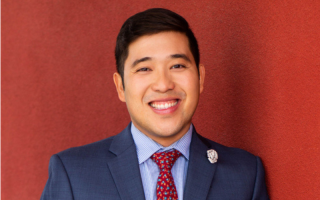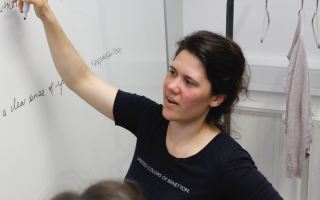Working Paper Series in American Politics 2022
- The Punitive Public? Testing the Opinion-Election Connection in Criminal Justice Policy | Curtis Bram, Arvind Krishnamurthy & Charles Nathan
Download the paper:
Abstract
A long-standing line of research attributes criminal justice outcomes in America to punitive attitudes held by the public. For these scholars, the primary mechanism driving this relationship is a punitive public electing punitive politicians. This article presents new evidence complicating that story by demonstrating that citizens’ punitive attitudes do not directly translate into their electoral choices. We use three national conjoint experiments to demonstrate this disjunction. Our first two experiments demonstrate agreement about which classes of offenders are more deserving of release. This agreement holds for Democrats, Republicans, and respondents at all levels of racial resentment. However, when respondents were asked to choose between hypothetical candidates promising to release these same classes of offenders, the consensus breaks down. In an hypothetical electoral context, partisan and racial resentment-based divisions emerge. These findings suggest that the translation between public levels of punitiveness and their electoral preferences regarding candidates’ criminal justice policies are not straightforward. Our findings suggest that researchers must focus more on the mechanisms connecting public opinion and criminal justice outcomes.Citation: Krishnamurthy, Arvind, Curtis Bram & Charles Nathan. 2022. “The Punitive Public? Testing the Opinion-Election Connection in Criminal Justice Policy.” CUSP Working Paper No. 2022-11. London: University College London.
Curtis Bram (Duke University)
curtis.bram@duke.eduArvind Krishnamurthy (Duke University)
arvind.k@duke.eduCharles Nathan (Duke University )
charles.nathan@duke.edu- Latinization of Organized Labor and Democratic Immigration Positions | Wenyan Deng and Zeyu Chris Peng
Download the paper:
Abstract
Why have Democrats become increasingly immigration-friendly even though organized labor, one of the largest Democratic constituencies, should theoretically benefit from less immigration? We argue that the answer to this puzzle may lie partly in the increasing incorporation of Latino workers in labor unions. Using Current Population Survey data, Congressional Roll-Call Data, as well as various text analysis algorithms applied to nearly 2,500 official AFL-CIO documents, this paper shows that the incorporation of more Latino members in organized labor altered labor elites’ positions on the immigration issue. Facing an organized labor constituency increasingly united on immigration, Democratic elites who are less pro-immigrant are gradually replaced by those who are more pro-immigration.Citation: Wenyan Deng and Zeyu Chris Peng. 2022. “Latinization of Organized Labor and Democratic Immigration Positions.” CUSP Working Paper No. 2022-4. London: University College London
Wenyan Deng (Massachusetts Institute of Technology)
wdeng@mit.eduZeyu Chris Peng (Massachusetts Institute of Technology)
pzy0337@mit.edu- Influence Through Diversity and Size: The Success of Racial Minority Interest Groups (RMIGs) Lobbying Coalitions | Nhat-Dang Do
Download the paper:
Abstract
Many scholars argue that business groups and other wealthy, elite interests dominate the American lobbying system. Racial minority interest groups, or RMIGs, are organizations that primarily represent the interests of marginalized racial communities that have fewer resources to contribute to organizational lobbying and who have very little political power. From this perspective, RMIGs should have little or no influence on policymaking. Is this empirically true? Under what conditions can RMIGs and similarly situated interest groups influence policymaking? I argue that race's high saliency in American politics has set RMIGs on a different path than traditional interest groups and has shaped their resources and strategies. Using this idea as a starting point and an original dataset of over 250,000 California bill analyses from 1997 to 2018, I show that RMIGs’ ability to influence politics dramatically increases when they can build large and diverse lobbying coalitions .Citation: Do, Nhat-Dang. 2022. “Influence Through Diversity and Size: The Success of Racial Minority Interest Groups (RMIGs) Lobbying Coalitions.” CUSP Working Paper No. 2022-3. London: University College London.
Nhat-Dang Do (University of California, San Diego)
n4d0@ucsd.edu- National Conflicts in Local Contexts: The Role of Candidates & Campaigns in Political Nationalization | Peter Dunphy
Download the paper:
Abstract
This paper considers how candidates for state and local office respond to a nationalized electorate. Drawing upon a supply and demand framework, I consider how the nationalization of the American electorate extends national-level partisanship to subnational races. I then consider supply-side factors, arguing that state and local candidates are drawn by electoral and material incentives to strategically nationalize, in which they draw upon national debates, topics, and symbols. Using two data sets, I find that strategic nationalizing is widespread and most likely to occur in nationally competitive districts. Contrary to my expectations, I find that strategic nationalizing is least likely to occur in primary elections. I conclude with a discussion of future paths of research to discover long-term patterns in strategic nationalization to greater consider contextual factors incentivizing candidate strategic nationalization, including future use of time-series data.Citation: Dunphy, Peter. 2022. National Conflicts in Local Contexts: The Role of Candidates & Campaigns in Political Nationalization.“ CUSP Working Paper No. 2022-6. London: University College London.
Peter Dunphy (University of Texas, Austin)
dunphy@utexas.edu- Examining the Post-1990 Shift in the Use of Restrictive Special Rules in the U.S. House of Representatives | Breanna Gray
Download the paper:
Abstract
The House Rules Committee has assigned more restrictive special rules to bills post-1990 than it has in history. Restrictive special rules limit the number of bill amendments and the amount of debate prior to a bill’s floor vote. In 1993, 9% of special rule assignments in the House were closed rules.1 By 2021, 54% of special rule assignments were closed rules, a 45% increase.2 Using an original Special Rules Bills Dataset, this paper isolates variables contributing to restrictive special rule use. Results show that out-party bill co-sponsorships play a key role in special rule assignments. Specifically, bills with fewer out-party bill co-sponsorships are more likely to receive restrictive special rules.Citation: Gray, Breanna. 2022. “Examining the Post-1990 Shift in the Use of Restrictive Special Rules in the U.S. House of Representatives.” CUSP Working Paper No. 2022-10. London: University College London
Breanna Gray (University of Pennsylvania)
crystene@sas.upenn.edu- Coalition Formation and Flexible Discourse About Gun Rights Among Conservative Interest Groups at the US Supreme Court | Josephine Harmon
Download the paper:
Abstract
The Second Amendment has long been a ‘hot topic’ among US conservatives, attracting diverse groups’ support. This paper proposes that shared discourse enables diverse conservative interest groups to establish coalitions while pursuing differing primary values. Gun politics accommodates diverse coalitions by being compatible with diverse value sets and not falling along ideological faultlines between bedfellows like libertarians and religious conservatives. Through qualitative content analysis of groups’ ‘friends of the court’ briefs in the landmark Supreme Court case of D.C. v Heller (2008), I argue that sharing a flexible discourse about gun rights is a strategic vehicle through which diverse groups pursue differing constituent priorities while sustaining coalition. These two analytical insights of the discursive flexibility of gun rights and its related capacity to realize groups’ ‘real’ priorities are mechanisms that sustain ideationally-broad coalitions. These findings help explain how diverse coalitions form and why gun politics attracts diverse support on the right.Citation: Harmon, Josephine. 2022. “Coalition Formation and Flexible Discourse About Gun Rights Among Conservative Interest Groups at the US Supreme Court.” CUSP Working Paper No. 2022-12. London: University College London
Josephine Harmon (University College London)
josephine.harmon.13@ucl.ac.uk- Do You Know My Name? How Local Elites Influence Primary Election Outcomes | Mackenzie Lockhart
Download the paper:
Abstract
Extensive evidence suggests that voters have little information about candidates in primary elections, yet Congressional primary electorates systematically tend to nominate ideologically extreme candidates and candidates with previous political experience. In this paper, I propose a model where party activists influence the outcome of primary elections by providing resources used to generate name recognition for favoured candidates. Using data on candidates, donors, campaign, and voters, I show empirically that party activist support strongly predicts primary election outcomes regardless of candidate experience or ideology, but that this support uniquely aids candidates with names that are common and easy to remember. Together, this evidence suggests that the invisible primary is central to the dynamics of congressional primary elections in the United States and political elites use the heuristic of name recognition to influence voters.Citation: Lockhart, Mackenzie. 2022. “Do You Know My Name? How Local Elites Influence Primary Election Outcomes.” CUSP Working Paper No. 2022-5. London: University College London
Mackenzie Lockhart (University of California, San Diego)
mwlockha@ucsd.edu- Age and Preferences for Public Debt | Arnaud Maurel
Download the paper:
Abstract
With governments worldwide promoting large debt-funded investment plans to build climate-resilient infrastructures, understanding citizens’ preferences for investments in ageing societies is timely. To illuminate how age shapes preferences for long-term policies, I study seniors’ support for real investment projects using several novel datasets on state and local bond elections in the United States over six decades. Ageing decreases time-horizon, which in turn diminishes support for long-term policies. Contrary to common wisdom, the fact that investments are funded by debt does not make seniors more favourable to them. By affecting goods’ utilization rates, age is also a strong predictor of preferences between different categories of investment. These age-based preferences are especially salient when different age groups cohabit. Seniors become more hostile towards investments when the share of children in their community increases, as resource allocation becomes more conflictual. Only intergenerational contact within the same household can alleviate these tensions. These results suggest that age shapes both intertemporal and immediate preferences for investments, and more strongly in communities with higher age heterogeneity.Citation: Maurel, Arnaud. 2022. “Age and Preferences for Public Debt.“ CUSP Working Paper No. 2022-8. London: University College London.
Arnaud Maurel (Columbia University)
aam2286@columbia.edu- Information and Ranked Choice Voting | Theodore Ntounias
Download the paper:
Abstract
Does ranked choice voting (RCV) change the information search behavior of voters? The answer to this question is important in the context of the proposed representational benefits of RCV, which I argue are conditional on voters broadening their information search. I present a theory, consistent with past work on voter behavior and information, which shows that (1) RCV is a more complex informational environment than typical single preference voting, which then predicts that (2) voters should be motivated to search for and retain more information on the candidates, and particularly on non-copartisans. This change in behavior should correspond to an increase in the cost of voting. I design a survey experiment to test this theory on a nationally diverse sample of U.S. adults. Results indicate that voters do not adapt their information search and retention behaviors, nor do they spend more cognitive effort in the process of voting.Citation: Ntounias, Theodore. 2022. “Information and Ranked Choice Voting.” CUSP Working Paper No. 2022-2. London: University College London
Theodore Ntounias (University of California, San Diego )
tdounias@ucsd.edu- Political Contributors by American Inventors: Evidence from 30,000 Cases | Nicholas Short
Download the paper:
Abstract
Has the Democratic Party’s commitments to the knowledge economy allowed it to reap electoral rewards among inventors who produce new technologies or have American political institutions confined those payoffs to only a few regions and candidates? To answer these questions, one must observe changes in the political behavior of American inventors over time. I therefore merged U.S. patent and campaign contribution (DIME) data to develop a unique dataset capturing donations and ideology scores for 30,603 American inventors who donated to political campaigns from 1980 through 2014. Aggregate trends suggest the Democratic Party has made inroads among the constituency of American inventors and that inventors who give to Democrats have become much more liberal over time. But closer scrutiny of the data suggests that these trends are explained mostly by changes in political geography as Democratic inventors increasingly reside in a few strong liberal enclaves. As a result, their growing numbers and contribution amounts are increasingly concentrated on a relatively small number of political candidates. These findings suggest that the geographic disparities inherent to the nation’s chosen strategy for knowledge economy development may ultimately limit that strategy’s political viability.Citation: Short, Nicolas. 2022. “Political Contributions by American Inventors: Evidence from 30,000 Cases.” CUSP Working Paper No. 2022-7. London: University College London.
Nicholas Short (Harvard University)
nshort@g.Harvard.edu- Electoral Institutions and Substantive Representation in Local Politics: The Effects of Ranked Choice Voting | Arjun Vishwanath
Download the paper:
Abstract
While studies of substantive representation in local politics have advanced considerably in the past decade, we know less about the effects of institutions on local representation. I explore the effect of an increasingly popular electoral institution—ranked choice voting (RCV)—on substantive representation. Examining a host of fiscal variables and the ideological composition of city councils, I find that the municipalities adopting RCV saw no changes in outcomes or representation. I also use roll call data to show that the behavior of legislators who served both before and after the use of RCV did not change and that intra-city responsiveness remained constant after implementation. Lastly, I find that RCV did not even induce ideological changes in the set of candidates who decided to run. I conclude that RCV does not produce the significant effects on representation for which its proponents hope.Citation: Vishwanath, Arjun. 2022. “Electoral Institutions and Substantive Representation in Local Politics: The Effects of Ranked Choice Voting.” CUSP Working Paper No. 2022-1. London: University College London
Arjun Vishwanath (Harvard University)
avishwanath1@g.harvard.edu- Taking Part without Blending In: Legalization Policies and the Integration of Immigrants | Stephanie Zonszein
Download the paper:
Abstract
The acculturation of immigrants is typically conceptualized by scholars as assimilation: their cultural identities dissolve into the larger culture so that they can enter mainstream societal institutions. However, one can happen without the other: when legalization policies remove barriers to joining these institutions, immigrants can participate with larger society without eliminating their cultural distinctiveness. I provide a conceptual framework which explains immigrants’ choice to either weaken or strengthen their cultural ties when acquiring legal status. Employing a regression discontinuity design using the Deferred Action for Childhood Arrivals program’s eligibility criteria, I show that this legalization program allowed unauthorized immigrants to the U.S. to maintain their cultural identity (by keeping naming practices), while promoting their participation with larger society (by learning English and participating in the labor market). This suggests that legalization policies can promote the integration of immigrants as opposed to their assimilation, by allowing diversity in common institutions.Citation: Zonszein, Stephanie. 2022. “Taking Part without Blending In: Legalization Policies and the Integration of Immigrants.” CUSP Working Paper No. 2022-9. London: University College London
Stephanie Zonszein (New York University)
sz1610@nyu.edu
 Close
Close

